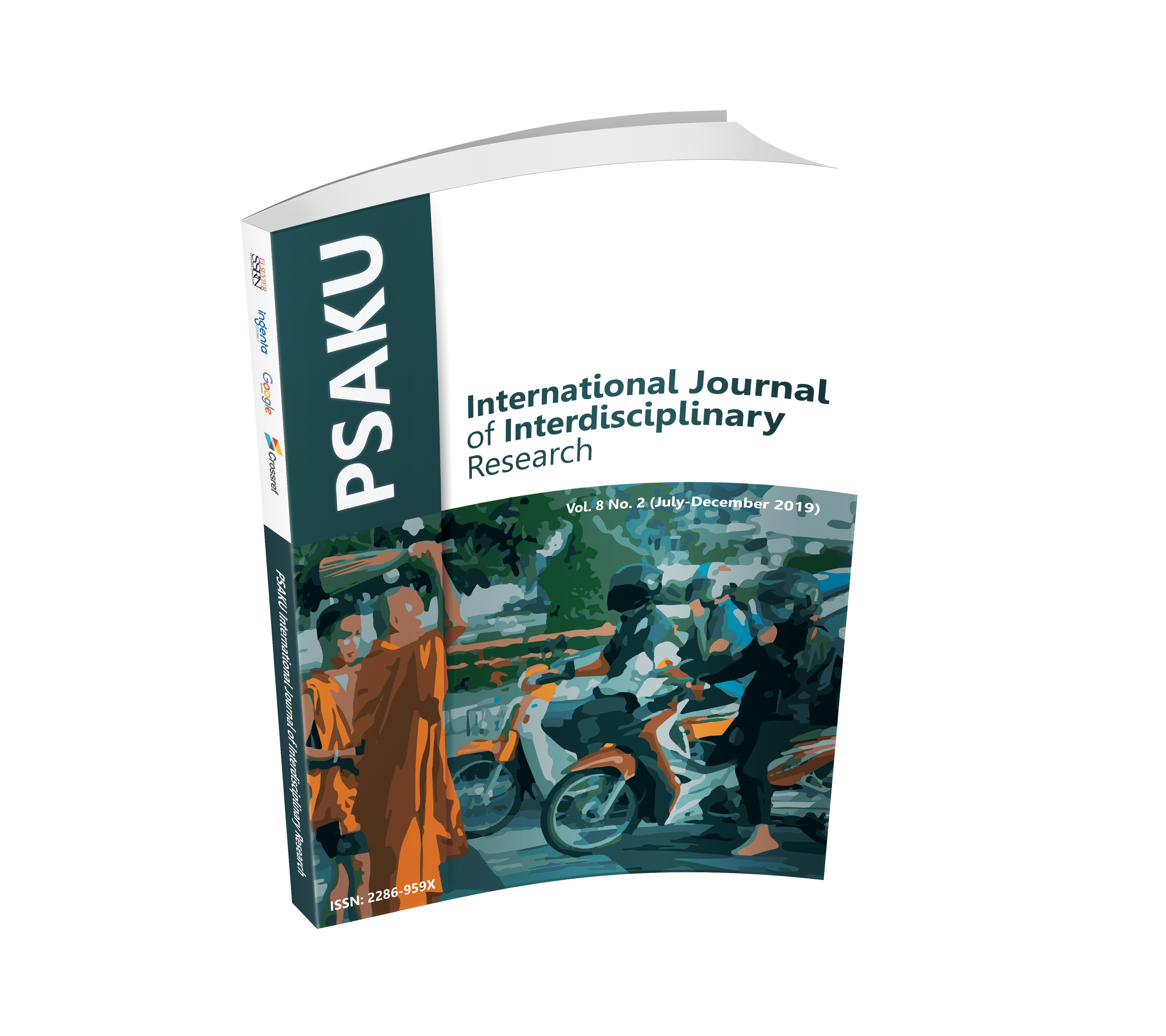High-school Exercise Intention in Bangkok: An application of Health Belief Model
Keywords:
Teenagers, Exercises, Health Belief ModelAbstract
The objective of this research is to study the intention teenagers’ exercise in Bangkok by applying the Health Belief Model. The data is collected with structured open-ended interviews with male and female teenagers aged between 12-18 years for 50 persons (25 male teenagers and 25 female teenagers). 75% of the sample group had the intention to exercise. 17.71% of the sample group recognized that if they do not exercise, they were at risk of becoming obese with unhealthy muscles (16.67%) and osteoporosis (13.54 percent). 46.67% of the sample group perceived severity of diseases caused by not exercising, loss of physical fitness, in the treatment of illness (45.16%), negative impacts on learning, family relationships, friends, society and mind (38%). All of the samples perceived that exercise makes good mental health, build good relationships with others (60.61%), and benefit to the body (43.36%). 69.70% of the sample groups had personality traits as barriers to exercise, such as laziness and lack of time (50.46%). 75% of the sample group was confident that they can exercise as they want and personal influences were cues to action of teenagers’ exercise.
Downloads












.png)


